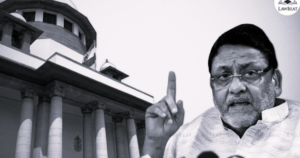
Punjab Governor summons budget session, SC says political differences must be dealt with maturity

The constitutional crisis over Punjab Governor Banwari Lal Purohit’s refusal to summon the budget session of the assembly from March 3 was blown over on Tuesday with the Supreme Court saying that the Governor was duty-bound to follow the advice of the state cabinet on the issue.
A Bench led by Chief Justice of India DY Chandrachud, however, disapproved of the conduct of both Governor Purohit and Chief Minister Bhagwant Mann for letting their political differences come in the way of discharging their constitutional duties.
While hearing Punjab Government’s petition against the Governor’s refusal to summon the budget session, the Bench cited Constitution Bench judgments to emphasize that the Governor’s power to summon the assembly under Article 174 of the Constitution has to be exercised on the aid and advice of the council of the ministers.
While hearing the Senior Advocate Abhishek Manu Singhvi, the SC held that the power of the Governor under Article 174 does fall under the Constitutional scheme and provides no scope for the Governor to act at his own discretion.
In its contrast, responding to the contentions of the Solicitor General of India Tushar Mehta, the Bench held that Chief Minister was also duty-bound to furnish the information sought by the Governor under Article 167.
Filed under Article 32 of the Constitution, the Punjab Government’s petition contended that under the constitutional scheme, the Governor is bound to summon the assembly as per the aid and advice were given to him by the elected government.
On Thursday, when the AAP government held its first Progressive Punjab Investors’ Summit, the Governor sent a letter to the CM, saying he would decide whether to allow the Budget session on March 3, only after he had sought legal advice on the “extremely derogatory and patently constitutional tweets and letter” written by CM Mann in response to his letter sent earlier this month.
Constitutional Scheme related to Parliamentary sessions
As per Article 174,
(1) The Governor shall from time to time summon the House or each House of the Legislature of the State to meet at such time and place as he thinks fit, but six months shall not intervene between its last sitting in one session and the date appointed for its first sitting in the next session.
(2) The Governor may from time to time-
(a) Prorogue the House or either House;
(b) Dissolve the Legislative Assembly.
Hence, the three sessions that we have in India regarding Parliamentary and State Legislative deliberations are not provided in the Constitution but adopted on the basis of conventions. However, as per the Parliamentary democratic principles, the Governor has to act on the aid and advice of the Council of Ministers in the given matter and the maximum duration between the two sessions should not be more than six months as given under the Constitution itself.
The Constitution of India provides a proper balance between the power of the Governor and the State Government to smoothen the functioning of the State polity. But adherence to the Constitutional principles is the norm that provides no exception. Hence, both the Governor and State Council of Ministers are very much obligated to fulfil their duties under Ar. 174 and Ar.167 respectively.








